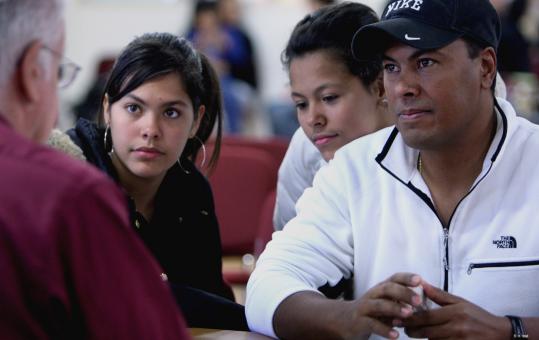
WENDY MAEDA/GLOBE STAFF
| Want to send this page or a link to a friend? Click on mail at the top of this window. |
More Special Reports |
| Posted September 28, 2009 |
| Fees Deter Many Immigrants From Citizenship | ||||
|
 |
|
WENDY MAEDA/GLOBE STAFF |
| Volunteers, including lawyers, helped qualified U.S. permanent residents like Santiago Vasquez and his two daughters, Maria and Mariana, fill out citizenship application forms at SEIU Local 615 near Downtown Crossing. |
|
By MARIA SACCHETTI |
|
GLOBE STAFF |
| Wehaitians.com, the scholarly journal of democracy and human rights |
| More from wehaitians.com |